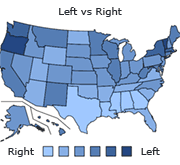Gus and Emma's Quiz
Robert Cox’s adage that “theory is always for someone, for some purpose†quite clearly applies to the contested concept of globalisation. A “bundled concept†(Duclaud Williams, 2008), different people with different interests use the term synonymously with ideas as varied as Americanisation, monetarism, neo-liberalism and cosmopolitanism. To analyse the effects of globalisation on a sector of the particular economy is therefore highly problematic as it is indeterminable whether effects and trends seen are as a result of globalisation or other factors which should not be amalgamated with the concept. To tackle this problem; this essay will limit its scope analysing the direct effects on informal and formal employment in India of trade liberalisation, increases in FDI and changes in export/import ratios. While the Structural Adjustment Plan of 1991 is highly significant in influencing these; its conditionalities are individual policies, not necessarily increasing the global nature of India’s economy.
Economic liberalisation, a key part of globalization as outlined by XXX has had significant effects in India, beginning in the 1980s and intensifying with the IMF Structural Adjustment program of 1991. Slow growth in India, 3.4% per year compared to 9.6% in South Korea in 1970s, and a realization that import substitution industrialisation could not be sustained due to the lack of an internal market caused Indian politicians, less economically nationalist than their predecessors, to globalize and liberalize the Indian economy. This essay shall critically examine the effects of this economic liberalization on both the informal and formal sectors. Globalization shall be taken to be the ceding of economic power from the national to the global level,

